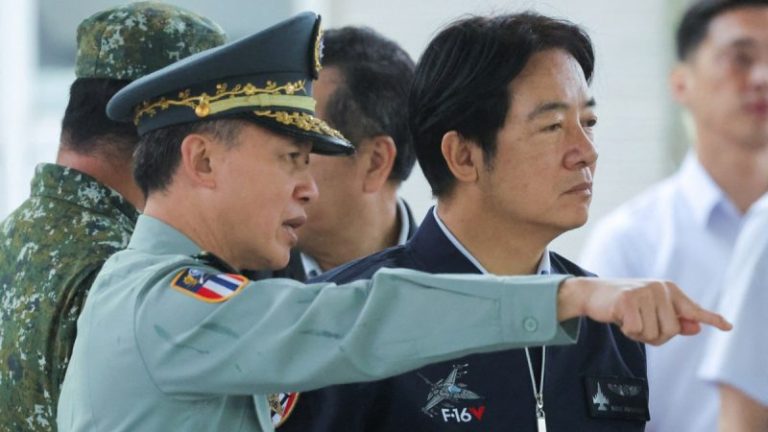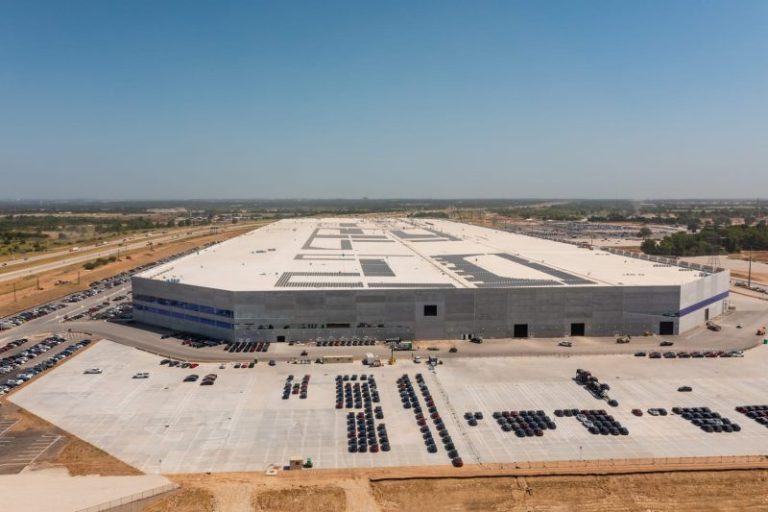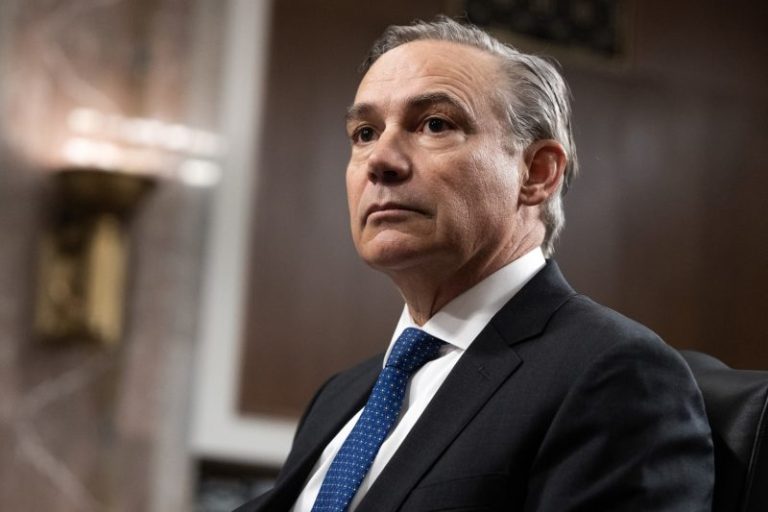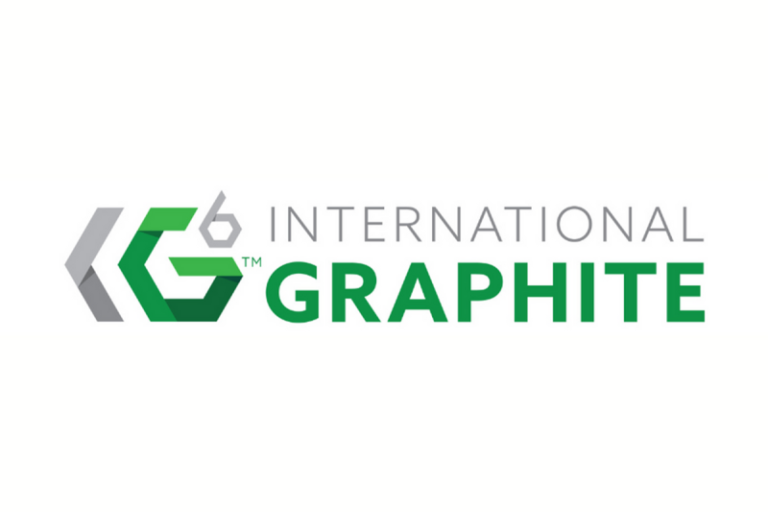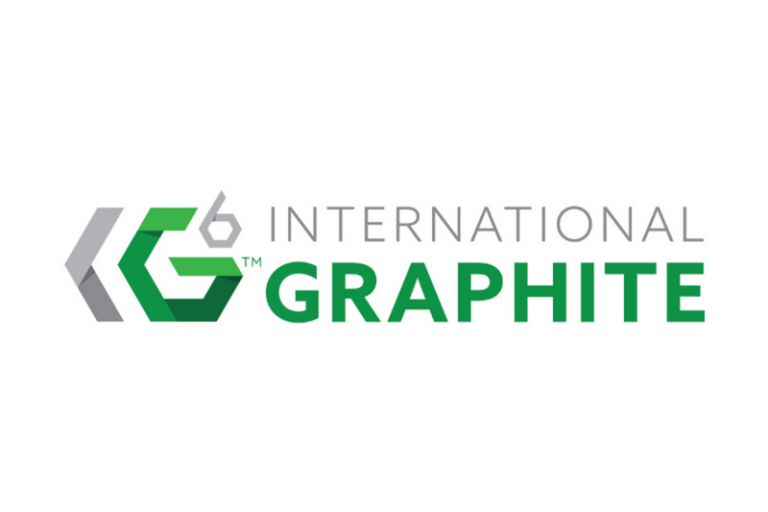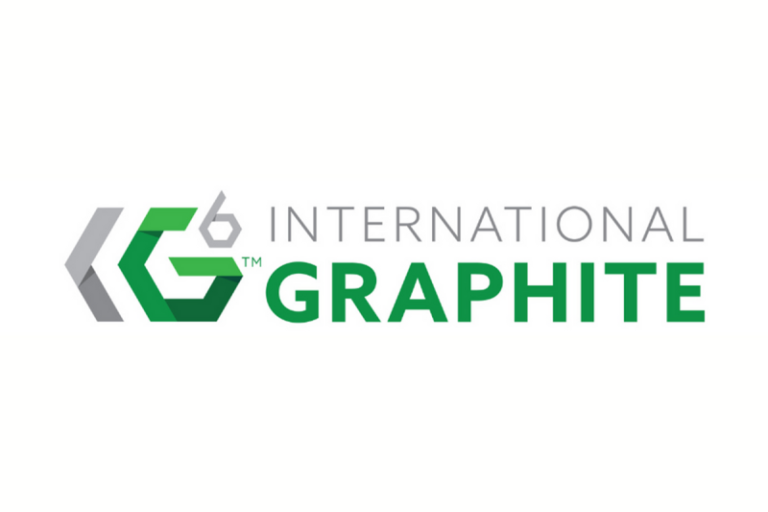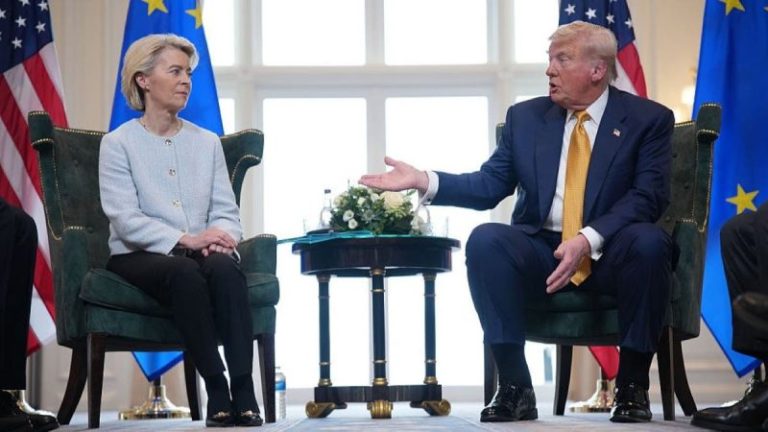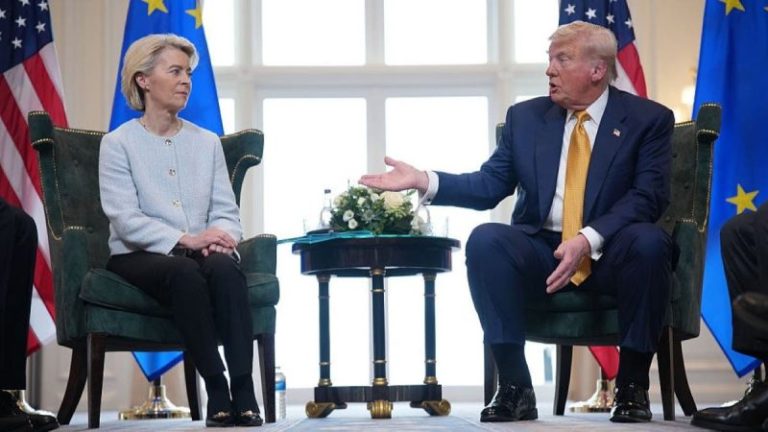The Trump administration is reportedly blocking Taiwan’s president from stopping over in New York City, en route to a diplomatic meeting in Central America, following pressure from China.
The Financial Times reported Monday that the administration has denied Taiwanese President Lai Ching-te the opportunity to stop over in New York City during a planned trip to Paraguay, Guatemala and Belize — all countries that recognize Taiwan as its own independent country.
However, on Monday, the office of the president in Taiwan released a statement indicating that Lai ‘currently has no plans to go on an overseas visit,’ according to Taiwan-state media. A source familiar with the matter at the State Department confirmed that no formal travel plans for President Lai have been announced.
‘In consideration of the ongoing rehabilitation efforts in southern Taiwan following a recent typhoon and regional developments including the United States’ tariffs, the president currently has no plans to go on an overseas visit,’ the statement from President Lai said.
According to the Financial Times, which spoke with unnamed sources said to be intimately familiar with the alleged trip, Lai’s decision not to travel came after he was informed that he would not be able to stop in New York City on his way to Central America.
Lai’s trip was also reportedly supposed to include a stop in Dallas, but it is unclear if the Trump administration was also planning to bar Lai from stopping there as well, according to the Financial Times.
The White House did not respond to Fox News Digital’s request for comment. However, a State Department source familiar with the matter indicated that the Trump administration continues to be committed to the government’s long-standing one China policy, rooted in the Taiwan Relations Act, joint diplomatic agreements with China and longstanding pledges crafted by the government in regard to Taiwan and China.
Despite being in line with longstanding government policy, the move still garnered criticism from some Asia policy experts and critics of Trump.
Lyle Morris, a senior fellow on foreign policy and national security at the Asia Society’s Center for China Analysis, said the ‘first concrete move’ under Trump’s second term regarding Taiwan is ‘a cause for concern.’
‘The assumption is this decision was made in the context of ongoing US-China trade negotiations and a possible Trump-Xi meeting,’ Morris said on X. ‘Still, not a good sign for enduring US-Taiwan relations.’
‘Denying President Lai a transit is a deeply concerning break with bipartisan precedent and sends a reckless signal to Beijing that our partnership with Taiwan is on the negotiating table,’ added Democrat Sen. Andy Kim, D-N.J., in a post on X following the news about President Lai’s alleged travel.
‘American leadership is now seen as deeply unreliable, with Trump’s fits and starts with Ukraine, NATO allies, and other key partners. I urge President Trump to reverse course and do what presidents of both parties have done and allow a transit, and ask my colleagues in Congress to join me in that call.’
News of the Trump administration’s decision to prohibit the Taiwanese president from stopping in New York City comes as the president is reportedly feeling out a potential trip to Beijing himself, alongside major U.S. CEOs. Nothing so far has been set in stone regarding Trump’s trip, however.

